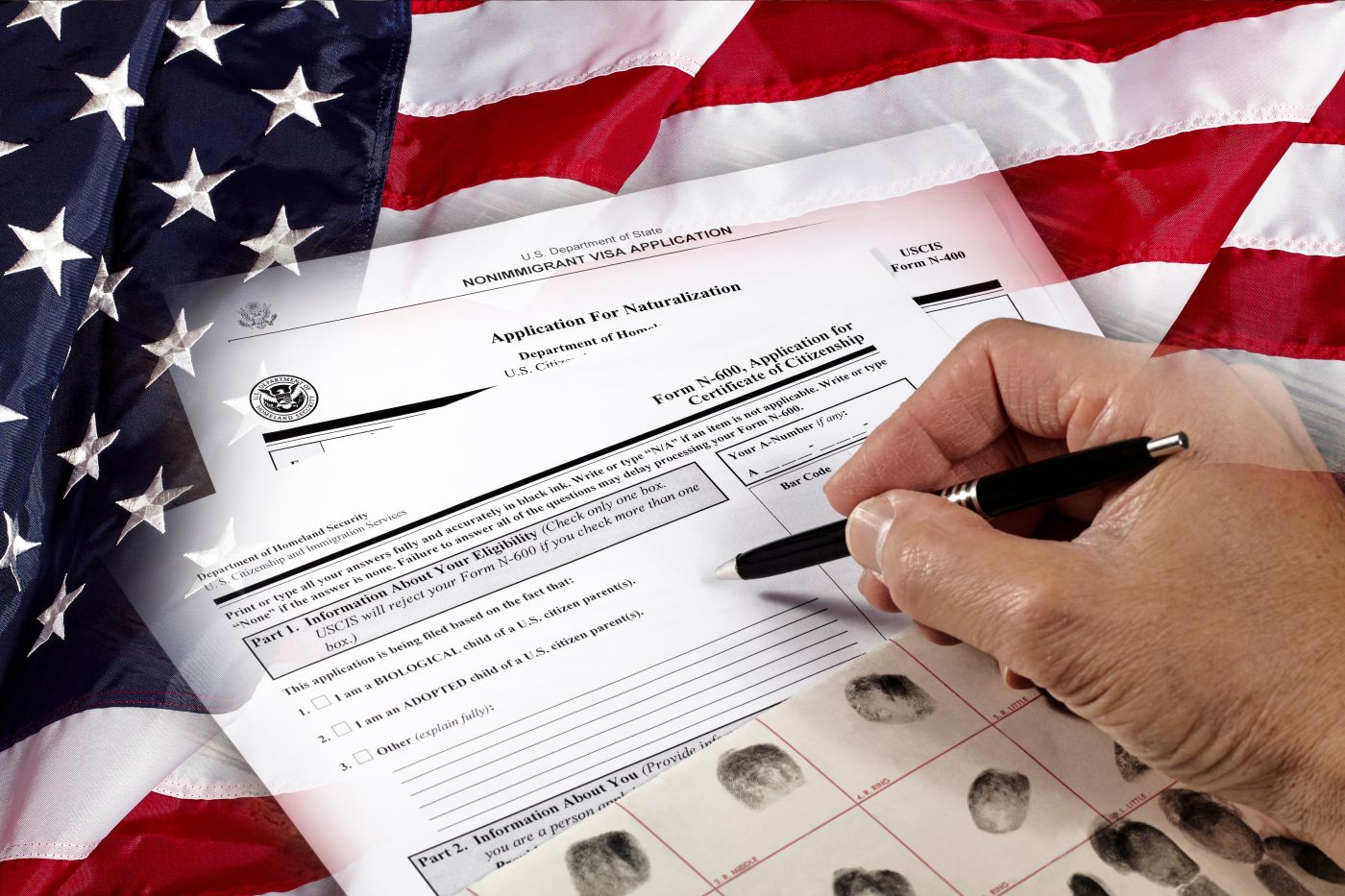
Becoming a U.S. citizen through the naturalization process is a significant step for many immigrants who have called the United States home for years. Naturalization grants individuals the full rights and responsibilities of citizenship, including the right to vote, work in certain government jobs, and obtain a U.S. passport.
Naturalization is managed by the U.S. Citizenship and Immigration Services (USCIS) and is available to lawful permanent residents (green card holders) who meet the required eligibility criteria. The naturalization process is comprised of several key steps, each requiring attention to detail and careful preparation.
At Herhusky Law Office, PLLC, we help individuals in Raleigh, North Carolina, and nearby areas pursue their dreams of American citizenship. We’re here to remove confusion from the naturalization process from start to finish.
Determining Eligibility
Before beginning the naturalization process, applicants must make sure they meet the basic eligibility requirements set by USCIS. While the exact requirements can vary, some of the common factors for eligibility include:
Age: The applicant must be at least 18 years old.
Permanent residency: The applicant must be a lawful permanent resident (green card holder) for at least 5 years. In some cases, spouses of U.S. citizens may apply after 3 years of permanent residency.
Physical presence: The applicant must have resided in the U.S. for at least half of the last five years. This means that the applicant must have been physically present in the U.S. for at least 30 months out of the past five years.
Continuous residence: The applicant must show continuous residence in the U.S. for the entire period required by law (5 years for general applicants and 3 years for spouses of U.S. citizens).
Good moral character: Applicants must demonstrate that they have maintained good moral character during their time as permanent residents. This includes issues such as criminal history or any involvement in actions that could be seen as demonstrating bad moral character.
English language proficiency: Applicants must demonstrate the ability to read, write, and speak basic English unless they qualify for an exemption (e.g., due to age or disability).
Knowledge of U.S. government and history: Applicants must pass a civics test, which evaluates their knowledge of U.S. history, government, and symbols.
To help confirm eligibility, applicants can review the Form N-400 instructions and consult with an immigration attorney if they are unsure about their qualifications.
Submitting Your Form N-400
The first formal step in the naturalization process is submitting your Form N-400, Application for Naturalization. This form is the primary document required by USCIS to begin the application process.
When filling out the Form N-400, applicants will need to provide detailed information about their personal history, including:
Basic information such as name, date of birth, and address.
Details of their residence and employment history.
Information about any legal issues or criminal history.
Evidence of good moral character.
It’s important to be as thorough and accurate as possible when completing the form. Any mistakes or omissions could lead to delays or denials. After completing the form, the applicant must submit it to USCIS along with the appropriate filing fee. As of 2025, the filing fee for the Form N-400 is $725, which includes the biometric services fee.
In North Carolina, applicants can submit their Form N-400 online or by mail, depending on their preference or eligibility. If filing online, the process can be more streamlined, as applicants can track the status of their applications in real time.
Biometrics Appointment
After USCIS receives the N-400 application, the next step is usually scheduling a biometrics appointment. During this appointment, applicants will have their fingerprints and photographs taken, and a background check will be conducted.
This is done to verify the applicant’s identity and conduct an in-depth background check for any criminal activity, immigration violations, or security concerns. USCIS will inform the applicant of the scheduled date and location for the biometrics appointment.
In North Carolina, the biometrics appointment is usually held at a USCIS Application Support Center (ASC). Applicants should take care to bring the required identification documents to the appointment.
USCIS Interview
Once the background check is completed, applicants will be scheduled for a naturalization interview with a USCIS officer. This interview is typically the most important step in the process and is held at a USCIS field office. North Carolina has several USCIS offices, with the most prominent ones in Charlotte and Raleigh.
During the interview, the USCIS officer will:
Review the N-400 application: The officer will go through the Form N-400 with the applicant to confirm all of the information is accurate and complete. The officer may ask the applicant to clarify certain answers or provide additional documentation if needed.
Test English proficiency: The applicant will need to demonstrate basic knowledge of English. This includes understanding simple sentences and answering questions in English. There are some exceptions for older applicants or those with disabilities.
Conduct a civics test: Applicants will be asked to answer questions about U.S. history and government. The civics test typically includes questions about important historical events, the structure of government, and significant national symbols. Some applicants may be eligible for an exemption or a modified test based on age or disability.
Review good moral character: The officer may ask questions to make sure the applicant has maintained good moral character, focusing on criminal history or immigration violations.
To prepare for the interview, applicants should review their Form N-400 thoroughly, practice their English-speaking skills, and study for the civics test. There are numerous resources available online, including sample questions and study materials from USCIS.
Receiving a Decision
After the interview, USCIS will make a decision on the naturalization application. The officer will issue one of the following decisions:
Granted: If the applicant meets all the requirements, their application will be approved. They will be scheduled for a naturalization ceremony to take the Oath of Allegiance.
Continued: In some cases, the officer may require additional information or documentation. If the officer isn’t able to make a decision at the time of the interview, the applicant may be issued a notice indicating that the case has been continued for further review.
Denied: If the applicant doesn’t meet the eligibility requirements or fails to provide the necessary documentation, the application may be denied. Applicants who are denied can appeal the decision or reapply.
Naturalization Oath Ceremony
If the naturalization application is approved, the final step is the Oath of Allegiance. This ceremony is a pivotal moment in the naturalization process, as it’s the official event where applicants become U.S. citizens.
During the ceremony, applicants will:
Recite the Oath of Allegiance, which renounces allegiance to other countries and pledges loyalty to the United States.
Take an oath of loyalty to the U.S. Constitution and its laws.
Once the oath is taken, the applicant will receive a Certificate of Naturalization, which serves as proof of U.S. citizenship. This certificate can be used to apply for a U.S. passport, register to vote, and take advantage of all the benefits of being a U.S. citizen.
Post-Naturalization Responsibilities
After the Oath of Allegiance, new citizens are encouraged to register to vote, update their Social Security record, and apply for a U.S. passport. They may also need to inform their employer or other organizations about their new citizenship status.
It’s also important for new citizens to be aware of the responsibilities that come with citizenship, such as serving on a jury if called, obeying U.S. laws, and paying taxes.
Contact an Immigration Attorney for Assistance
By following the steps outlined above, understanding the requirements, and seeking the appropriate legal advice when necessary, immigrants in North Carolina can navigate the path to U.S. citizenship with confidence.
At Herhusky Law Office, PLLC, we’re proud to serve clients throughout the Raleigh, North Carolina, area, including Raleigh, Durham, Greensboro, Fayetteville, Charlotte, Wilson, Wilmington, greater North Carolina, and beyond. Contact our immigration attorney today for in-depth assistance with the naturalization process.


